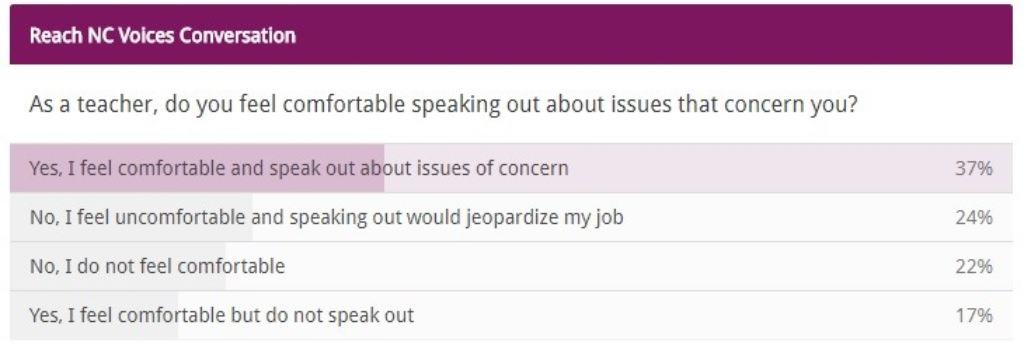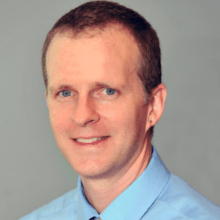“Silence encourages the tormentor, never the tormented” said Elie Wiesel in his Nobel Prize acceptance speech, referring to the consequences of failing to speak up against injustice. He went on to say that one person of integrity can make a difference in the face of oppression, provided that person is willing to take a stand.
We live in a much different world today than the one Wiesel endured, but his call to action is just as relevant. We face serious challenges in education at the national, state, and local levels, and those challenges appear to be growing. Changes around critical issues such as school choice, teacher retention, standardized assessments, and protections for our most vulnerable students are on the horizon, and it is essential that those changes are informed by the people with the clearest perspective on classroom needs: our teachers.
Teacher voice is an integral part of crafting the policies that greatly impact our students, yet in a state with nearly 100,000 teachers, there are often only a handful of educators involved in policy discussions. Teachers may feel that their voices will not be heard by policymakers. Other times, they fear reprisal such as punitive treatment or termination for being too vocal and not “staying in their lane.” This culture of fear leads to an unhealthy silence and maintains a status quo that often is not beneficial for our students.
At its February 13 meeting, the Charlotte-Mecklenburg Board of Education issued a statement on employee expression which squarely addresses that culture. The statement acknowledges the importance of employee input, welcoming ‘experience and wisdom’ of staff in helping to ‘inform effective education policy.’ While reminding educators that their conduct may not violate law or existing standards of conduct, the board pledges in the statement that it will ‘act to ensure that employees feel free to express their views without fear of retribution.’
The CMS statement follows similar resolutions issued by Durham Public Schools and Chapel Hill–Carrboro City Schools in 2016. Those resolutions also point out how essential school employees’ expertise is to debate over education policy and encourage teachers and other staff to exercise their free speech rights in a manner that is consistent with their duties as educators.
While these school districts lead the way in embracing teacher voice, other North Carolina counties have much work to do. My work as a fellow with Hope Street Group’s North Carolina Teacher Voice Network brings me into contact with lots of teachers from all over the state. Through those experiences, I’ve learned that some North Carolina teachers face implicit policies which forbid them from freely expressing their views on education issues. For those teachers, writing an op-ed for their local newspaper, for example, sometimes results in intimidation and negative retribution from school leadership.
In a recent EdNC poll which asked whether North Carolina teachers felt comfortable speaking up about issues that concern them, nearly half of the respondents said they did not. A quarter believed that doing so would put their job in jeopardy. Those results should be troubling to us all. Imagine how much collective talent is being squandered, how much creativity is going untapped, and how many solutions are going unheard simply because teachers are afraid to lift their voices to address the problems they see each day.


If we can eliminate obstacles to teacher voice across this great state, we will put teachers in a better position to help ensure the formulation of education policies that most effectively serve the needs of our students. Increased employee engagement in decision-making will also encourage initiative and innovation and lead to an atmosphere of mutual trust and loyalty. It can go a long way in making our schools more supportive environments that value and retain employees.
Honoring the participation of all education stakeholders in this manner will help us to create a school system that is the best it can be for students and teachers alike.



